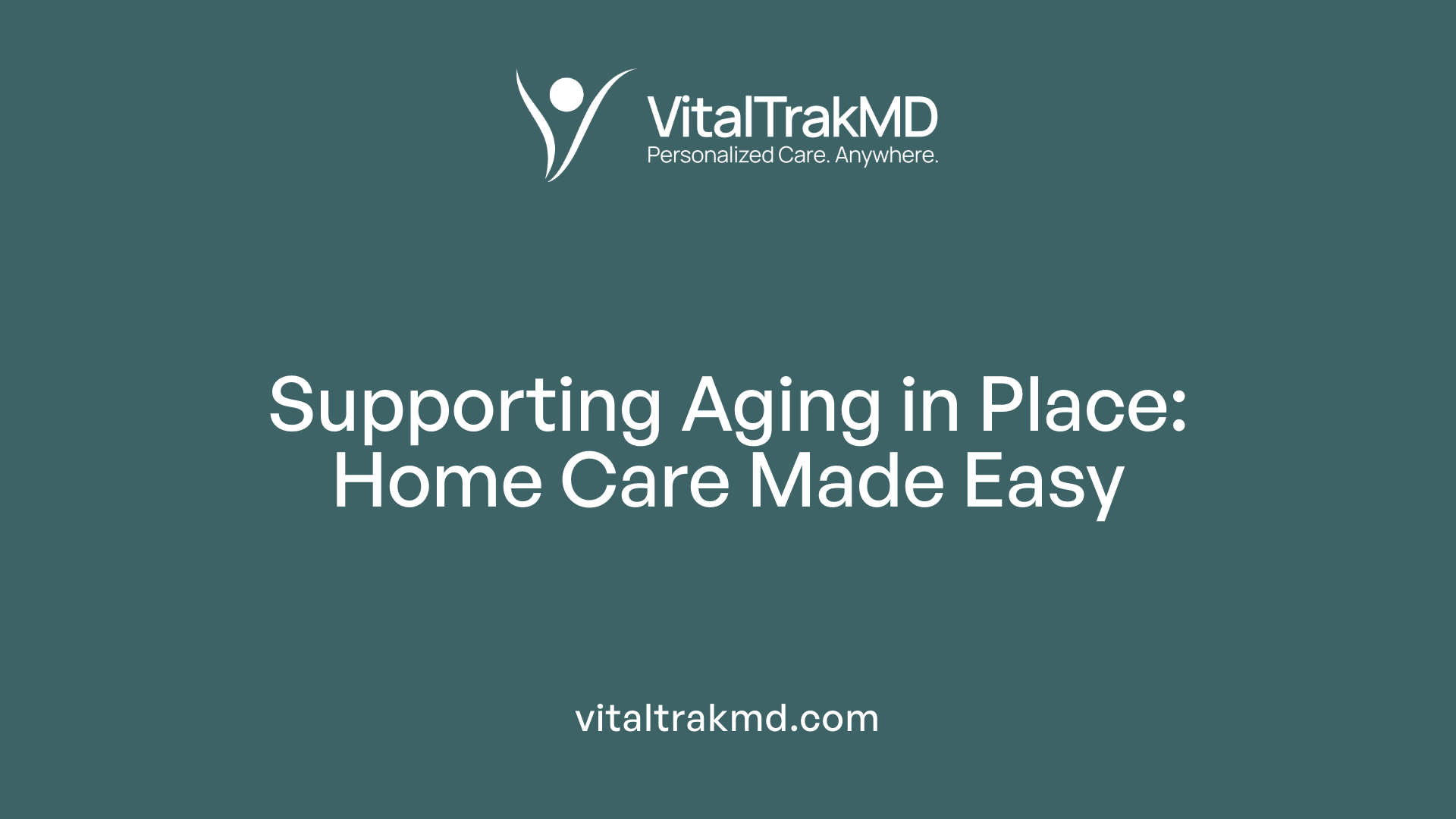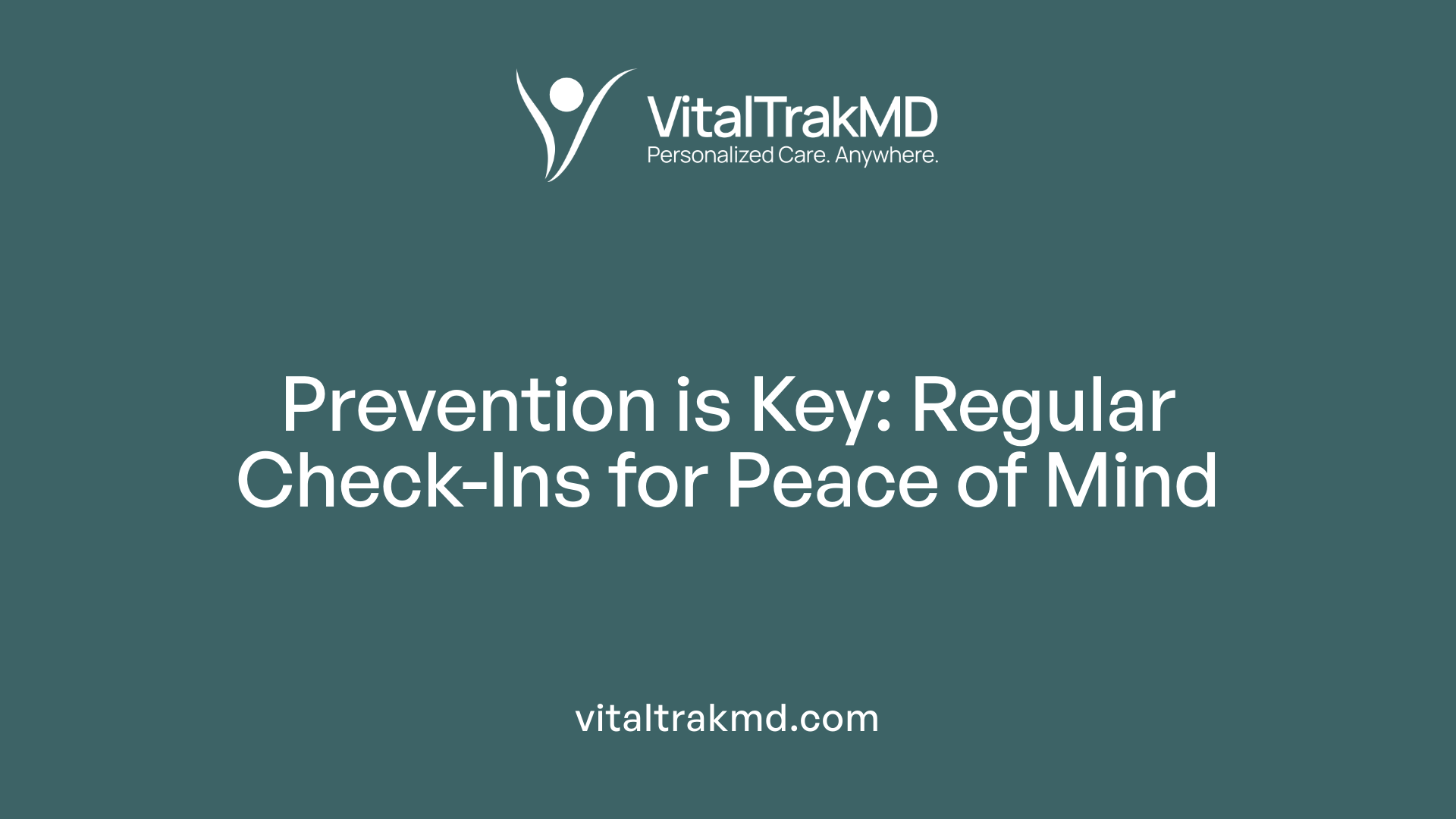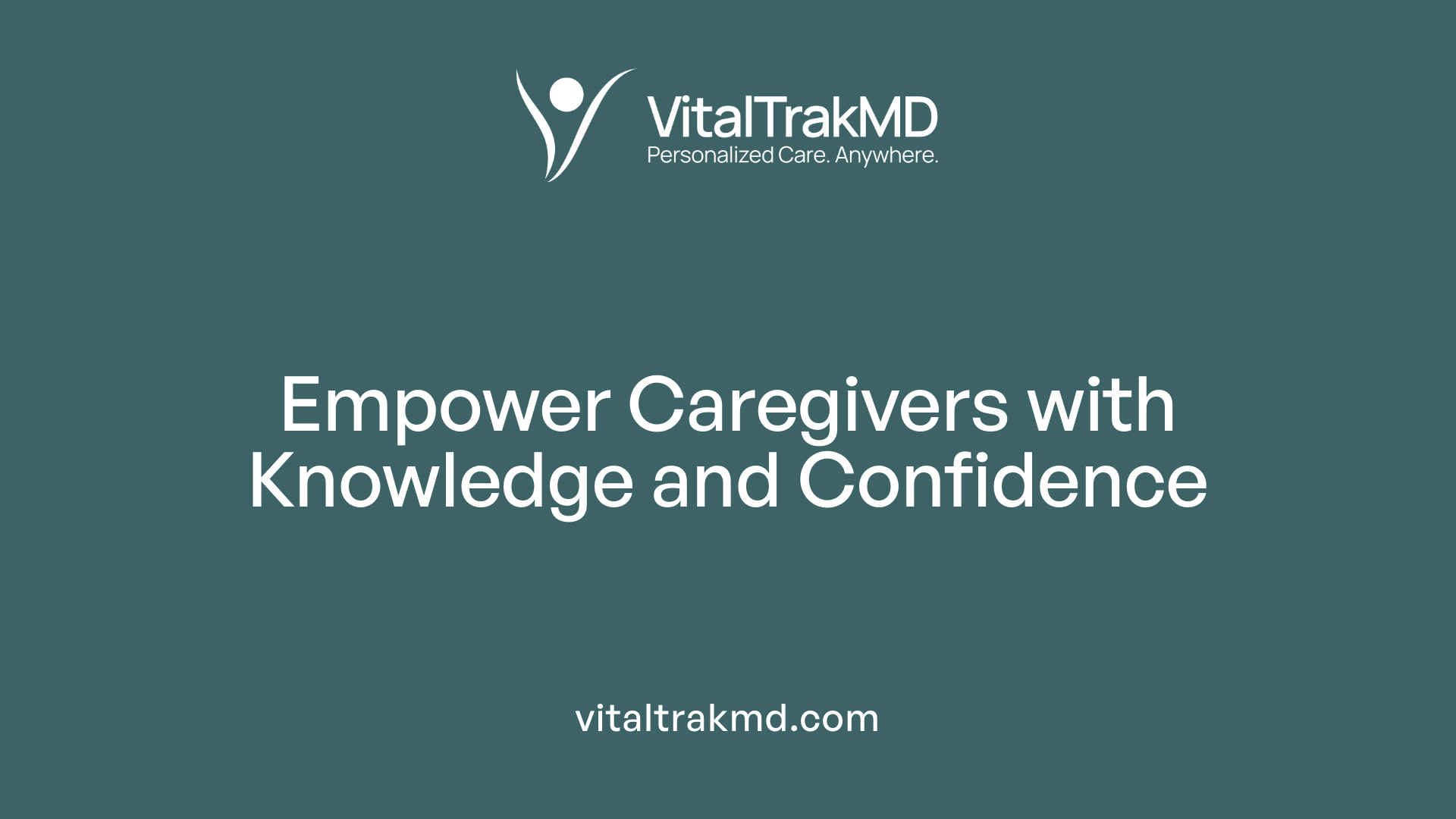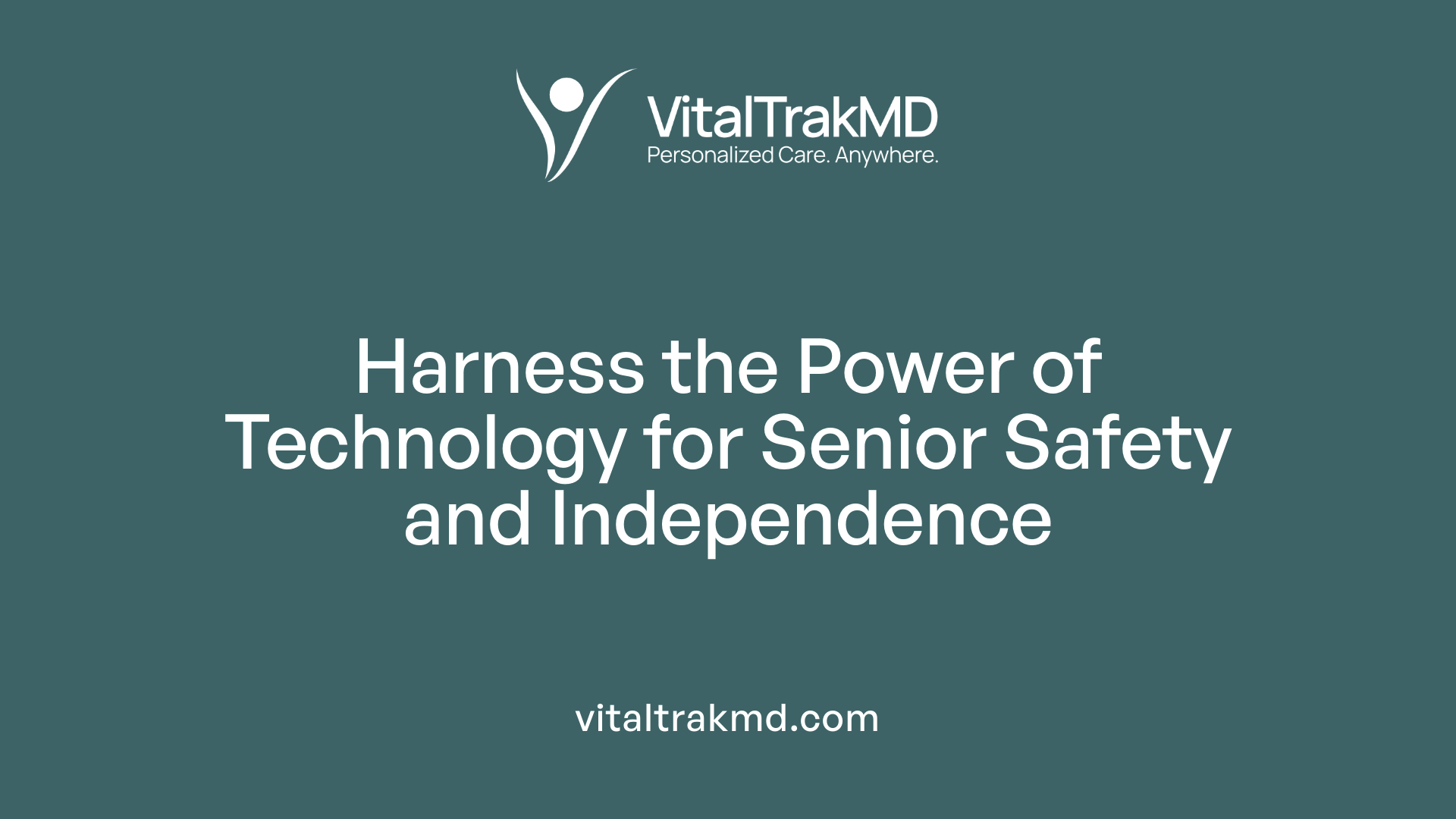Benefits of Senior Health Check-Ins at Home

Understanding the Value of Regular Senior Wellness Checks at Home
As the aging population grows, the importance of maintaining health and independence for seniors becomes ever more critical. Home-based health check-ins and assessments provide a strategic approach to supporting elderly well-being, promoting early detection of health issues, and enabling aging in place. This article explores the multifaceted benefits of regular at-home senior health evaluations, focusing on safety, chronic condition management, mental health, and the integration of technology and caregiver support.
The Comprehensive Benefits of Senior Health Check-Ins at Home

What are the benefits of regular home-based health assessments for seniors?
Regular health check-ins conducted at home provide numerous advantages that contribute to the well-being and independence of seniors. These assessments facilitate early detection of potential health issues, enabling prompt medical intervention before conditions worsen. For example, regular blood pressure and glucose monitoring can identify signs of hypertension or diabetes early, leading to timely treatment.
Besides early detection, these assessments support the ongoing management of chronic diseases such as arthritis, heart disease, or COPD. They help ensure medication adherence through reminder devices and allow healthcare providers to adjust treatment plans based on current health status. This proactive approach improves overall health outcomes and reduces the likelihood of hospitalizations.
Safety plays a crucial role too. Devices like fall detection sensors and emergency response systems provide seniors with added security and peace of mind. Furthermore, in-home health assessments contribute to personalized care planning by addressing both medical and non-medical needs, including vision, dental, and hearing health.
Beyond physical health, regular check-ins also bolster mental and emotional well-being. Social visits from caregivers or volunteers help diminish feelings of loneliness and isolation, which are common among seniors living alone. These interactions can include health monitoring, emotional support, and engaging activities, all promoting a better quality of life.
Overall, home-based health assessments are vital for maintaining independence, preventing health emergencies, and supporting seniors in aging comfortably within their familiar environment. They make healthcare more accessible, reduce costs by preventing advanced illnesses, and enhance the safety and happiness of older adults.
Supporting Aging in Place Through Home Health Care Services

How do home health care services support aging in place?
Home health care services play a vital role in helping seniors stay in their own homes for as long as possible. These services provide essential medical support like nursing care, medication management, and regular health monitoring. Personal support, including assistance with daily activities such as bathing, dressing, and meal preparation, ensures that seniors' physical needs are met without needing to relocate.
In addition to direct health services, home modifications and safety assessments are often part of the care plan. These adaptations, like grab bars, better lighting, or non-slip mats, reduce fall risks and improve accessibility.
Transportation services enable seniors to attend medical appointments, social activities, and run errands conveniently. Social engagement is further supported through community programs, volunteer visits, and social activities, which help combat loneliness and promote mental health.
Technology also plays a role, with assistive devices and health monitoring apps allowing ongoing wellness checks and early detection of health issues.
Community resources like meal delivery services, home repair programs, and social clubs extend support networks, ensuring seniors can maintain independence.
Altogether, home health care services—covering medical, personal, safety, and social needs—are designed to support seniors in maintaining their independence, safety, and quality of life, all within their own familiar environment.
The Preventive Advantage of Regular Health Check-Ins

Can regular health check-ins at home help in preventing emergencies for seniors?
Yes, regular health check-ins at home play a vital role in preventing emergencies among seniors. These proactive visits allow healthcare providers to conduct important screenings and assessments early on, which can catch potential health issues before they become urgent.
During routine check-ins, seniors are screened for conditions such as hypertension, diabetes, and various types of cancer. Early detection of illnesses like high blood pressure or prediabetes enables timely treatment plans, helping to reduce the risk of severe complications or sudden health crises.
In addition to disease screening, vaccinations and routine immunizations are reviewed and administered if needed, strengthening seniors’ defenses against preventable illnesses like influenza and pneumonia.
Other essential health screenings include bone density tests to gauge osteoporosis risk, cholesterol and blood sugar levels to assess cardiovascular health, and cognitive assessments to identify early signs of dementia or depression.
Vital signs, such as blood pressure, heart rate, and respiratory rate, are monitored regularly. Blood tests further examine markers related to overall health, organ function, and nutritional status.
Engaging in these preventive measures not only detects potential health issues early but also significantly reduces overall healthcare costs by avoiding expensive emergency treatments and hospitalizations.
In summary, consistent home-based health check-ins help seniors maintain their independence and quality of life by addressing health concerns proactively. These practices support healthier aging and lessen the likelihood of sudden health emergencies, fostering peace of mind for both seniors and their loved ones.
Managing Chronic Conditions Effectively at Home
What role do in-home visits play in managing chronic health conditions for seniors?
In-home visits are vital for seniors managing long-term health issues like diabetes, COPD, and cardiovascular diseases. These visits allow healthcare professionals such as nurses, therapists, and home care aides to assess vital signs, medication routines, and overall health within a familiar setting.
During these visits, personalized care plans can be adjusted promptly to better suit the senior’s current health status. The professionals also provide education on self-management, including medication adherence, lifestyle modifications, and physical activity, which are essential in controlling chronic conditions.
In addition to direct assessments, in-home services often incorporate smart health technologies, such as wearable devices and remote monitoring apps, to keep continuous track of health metrics. Alerts from these systems can warn caregivers and providers about concerning changes, enabling swift intervention.
Overall, these visits help seniors maintain independence, stay healthier at home, and significantly reduce the risk of emergency hospitalizations. This proactive approach enhances both quality of life and health stability for elderly individuals dealing with chronic illnesses.
| Aspect | Details | Additional Notes |
|---|---|---|
| In-home assessment | Vital signs, medication review, health status | Conducted by healthcare professionals in a familiar environment |
| Monitoring technologies | Wearable devices, health apps, alert systems | Facilitate continuous health tracking |
| Patient education | Disease management, medication use, lifestyle | Empowers seniors for self-care |
| Impact | Reduced hospital visits, improved quality of life | Supports independence and timely treatment |
| Challenges | Ensuring technology access, caregiver coordination | Calls for policy reform and caregiver training |
Regularly integrating these strategies ensures a comprehensive approach to managing chronic illnesses at home, proving crucial in promoting stability and preventing complications.
Empowering Families and Caregivers Through Education

Why is it important to educate families and caregivers about home health assessments?
Educating families and caregivers is fundamental because it equips them with the knowledge to identify early signs of health problems. Recognizing issues like confusion, sudden weight loss, or changes in mobility promptly can lead to earlier medical intervention, ultimately improving health outcomes.
This education also emphasizes the value of routine assessments, medication management, and preventive screenings. When caregivers understand these elements, they can monitor for risks such as falls, cognitive decline, or depression more effectively.
Moreover, well-informed caregivers develop crucial skills in communicating with healthcare providers, managing medications, and maintaining safe home environments. They learn to observe subtle health changes and respond appropriately, which reduces the caregiver’s stress and prevents emergencies.
Family-centered education encourages adherence to care plans, including medications, lifestyle changes, and safety modifications. It promotes a proactive approach to health, helping seniors maintain independence and improve their quality of life while aging at home.
In essence, providing caregivers with proper knowledge fosters a supportive environment where seniors are healthier, safer, and more valued, ensuring optimal home-based care and enhancing overall wellbeing.
Technology-Driven Monitoring and Support Tools for Seniors

Are there specific apps or services that facilitate daily health check-ins for seniors?
Yes, numerous applications and services are available to help seniors perform daily health check-ins and safety monitoring. These tools are designed to ensure that older adults remain safe, connected, and healthy while maintaining independence.
One popular example is the Snug app, which allows seniors living alone to confirm their well-being each day. If a check-in is missed, the app automatically alerts designated emergency contacts, providing peace of mind for families and caregivers.
Other notable services include Medical Guardian's MyGuardian app, offering GPS tracking and emergency notifications, and Bay Alarm Medical's Caregiver Tracking App, which enables caregivers to monitor health status and safety alerts remotely.
Lively's Health & Safety services combine wearable devices with mobile apps to detect falls, track location, and send SOS signals. Many of these apps support integration with wearables and in-home systems, making health and safety checks more reliable.
Specialized safety applications such as FallSafety Home provide fall detection, GPS location, and emergency alerts, significantly reducing response time in critical situations.
These digital tools not only make daily health check-ins more manageable for seniors but also facilitate better communication with healthcare providers. With many apps offering caregiver access and real-time data sharing, they promote a proactive approach to senior health management.
Overall, technology offers practical solutions that help seniors stay safer and enable loved ones to be more involved in daily health monitoring, reducing risks and enhancing overall well-being.
A Holistic Approach to Senior Well-Being Through Home Monitoring
The integration of regular health check-ins, technological innovations, caregiver support, and community services creates a robust framework for supporting seniors aging in place. These comprehensive measures not only facilitate early detection and effective management of health conditions but also promote safety, emotional well-being, and independence. As the demand for personalized, accessible healthcare grows, embracing home-based assessments and monitoring systems stands out as an effective strategy to enhance the quality of life for the elderly, ensuring they remain healthy, safe, and connected in their own homes.
References
- Benefits of Health Monitoring at Home
- How Medicare Advantage In-Home Health Assessments Keep ...
- Doctor Home Visits Can Benefit your Aging Loved Ones
- Wellness Checks Save Lives: The Critical Role of Meals on Wheels ...
- Services for Older Adults Living at Home | National Institute on Aging
- The Importance of Regular Health Screenings for Seniors in Home ...
- The Importance of Senior Citizen Health Checkups - Ennoble Care
- Aetna Healthy Home Visit Program - Medicare Plans
- Personalized Mobile Health for Elderly Home Care: A Systematic ...
Recent articles
Want to Feel Better and Live Healthier?
Join hundreds of patients taking control of their health with personalized care that fits their life – not the other way around.
Rated 4.8/5 by 32+ customers







